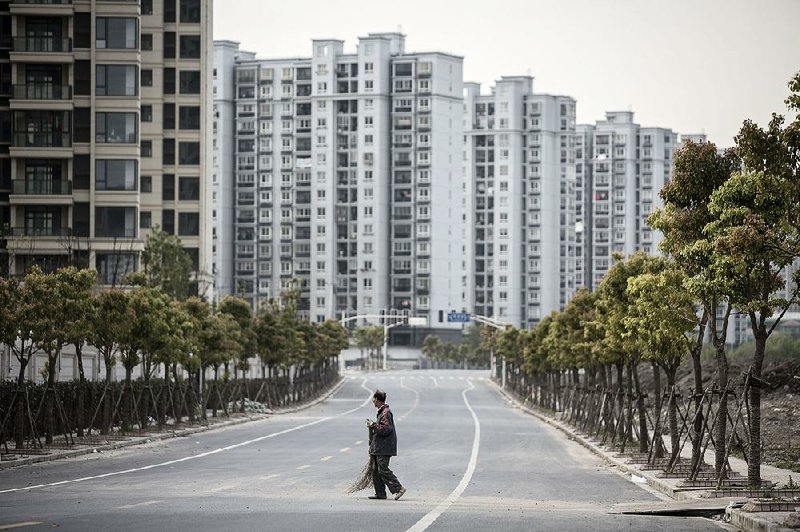Tai Hui is experiencing deja vu.
China's surge in home prices reminds JPMorgan Asset Management's chief Asia market strategist of last year's stock market mania. Spiraling leverage and implicit state support are among the common denominators, he said. Shanghai property values jumped 31 percent in August from a year earlier, the latest data show. In 2015, a 60 percent rally in the city's equities through June 12 was followed by a $5 trillion rout.
Deutsche Bank Group warned last month that China's housing market is in a bubble, while Goldman Sachs said this week it sees growing risks across the real estate industry. Home prices started to take off last year in the wake of the stock market crash after the governments eased curbs on property purchases. In recent days, cities including Shenzhen have started re-imposing restrictions.
"It's similar to the equity market where if you let things loose, it just runs like a stallion," said Hui. "And then you have to really rein it back, then it's like an ice bucket challenge. So you go through this extreme heat and cold. That's not particularly good for the economy because then you're going through very aggressive investment cycles."
At stake is the government's ability to channel funds trapped by capital controls into investments that can help the economy without creating asset bubbles. Speculative buying of commodity futures earlier this year fueled a boom that quickly unraveled, while an intervention to halt plummeting stock prices dented the credibility of policy makers and roiled global markets.
Demand for property is improving the outlook for commodities and lifting the earnings outlook for construction-related firms. Profits of industrial companies jumped the most in three years in August, while factory output, investment and retail sales also beat analysts' estimates.
Home prices started to climb after China eased mortgage policies and down-payment requirements in March 2015 to arrest what was then a slide in prices. New curbs, such as higher deposits to limits on the number of homes people can buy, are proving ineffective given the easy access homebuyers have to leverage, said Wee May Ling, an investment manager at Henderson Global Investors Ltd.
Medium and long-term new loans, mostly mortgages, totaled $79 billion in August, while aggregate financing jumped to $220 billion, helping fuel a 39 percent jump in property sales by value in the first eight months. Private investment in fixed assets, meanwhile, stalled at 2.1 percent for a second straight month in the January through August period, matching a record low.
While HSBC Holdings said the overall level of China's household debt remains low, Deutsche Bank said it sees "clear sign of a bubble" in property -- one that will end in a major correction in two years' time. Just like last year's equity boom, China is using credit growth to drive the economy, Zhiwei Zhang, chief China economist at Deutsche Bank, wrote in a report on Sept. 28.
"The main concern about China is that it has reverted back to the old model in terms of stimulating growth by monetary and credit side," said Philipp Baertschi, Zurich-based chief investment officer at Bank J. Safra Sarasin.
There are signs policymakers are acting to restrain growth in debt. The People's Bank of China has kept its benchmark lending and deposit rates on hold for nearly a year and banks' reserve ratios unchanged since February, failing to deliver the additional cuts private economists had forecast in earlier surveys. The central bank has also used longer-term tenors in the open market to drive up funding costs in a bid to rein in leverage.
Still, any winding down of debt brings its own risks.
"We saw the stock market tumble in 2015 from June throughout the second half, triggered by the unwinding of leverage after margin lending reached record highs," said Jing Ulrich, vice chairman of Asia Pacific at JPMorgan Chase & Co. "Today, an alarming sign is that leverage is also building in the property market."
While analysts aren't predicting home prices to collapse in the manner of the stock market, last year's experience shows the risk of allowing a leverage-fueled boom to spiral out of control.
JPMorgan's Hui said China appears to be repeating the mistakes of the past.
"The government seems to just go through wild swings when it comes to control and let things loose because they want growth coming back," he said.
Business on 10/07/2016
